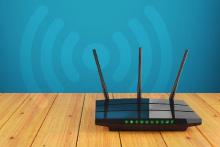
There's little more infuriating than a Netflix show stuttering and stopping right at the climax thanks to bad Wi-Fi. The collective groans, the held breath as loading stalls at 99%, the children crying for Moana to come back: all of these could be avoided if the internet just stayed steady. But alas, steady internet is rarely our reality, and in our area, internet service provider options are too limited to solve the problem.
What's worse, with last year's Supreme Court decision to decline to hear an appeal on net neutrality, ISPs can still throttle your internet, limiting your broadband if you're streaming more YouTube or Hulu than they want, and providing slower connections to websites owned by their competitors. Luckily, there's a solution to some of these problems: the virtual private network. Basically, ISPs need to see your IP address to slow down your internet, and a good VPN will shield that identity. Here's how to find one and use it to check whether your ISP is artificially slowing down your internet.
Step 1
Test your internet health
You can measure the health of your internet in a number of ways, but I would suggest starting out with a simple test through M-Lab. This will check your connection speed, essentially gauging whether your ISP is providing consistent performance no matter the content you're accessing. This measurement isn't perfect, but it's a good starting place.
Step 2
Find a reliable VPN
If you've done a basic first test on your internet health, and you still think something may be awry with your ISP, start researching VPNs. There are dozens of reasons to get one, and just as many factors to take into account while searching for the best virtual private network, such as security, price and server locations. I can save you that work by recommending ExpressVPN which I've used for years and give a clean bill of health to.
Step 3
Compare your speed with the VPN.
Next, test your internet speed somewhere like Fast.com or Speedtest.net. Compare the results to the same test when your VPN is active. The use of any VPN should cut your speed considerably, so the speed tests should show a discrepancy, with the VPN-active speed notably slower than the VPN-inactive speed. But a VPN also hides the IP address that providers use to identify you, so if your speed test with the VPN is faster than without the VPN, that may mean your ISP is targeting your IP address for throttling.
Step 4
Fix your internet
OK, this is the hard part. Even if you find out your provider is throttling your internet, there may not be much you can actually do. Many people in the US live in regions with ISP monopolies or duopolies, so you might not be able to find a better provider. But here are a few useful responses:
- If you do have options, use the best provider in your area. Measurement Lab provides a good resource for finding info specific to your region, and that can guide you to a more reliable ISP.
- Use your VPN to maintain more consistent speeds. A VPN can't solve a bad connection or other reasons behind your slow service, but it can mitigate throttling from unscrupulous ISPs.
- Call your provider and threaten to switch providers if they don't stop throttling your internet. This might seem old fashioned, and I can't guarantee lasting results, but providers have been known to respond positively to such tactics.
That's it for this month. Just a quick reminder to please share your tips or tech experiences with the rest of the Sangat. Just email me and tell me your story, and keep sending me your suggestions for column topics, along with your own favorite smartphone app recommendations and reviews so I can share them here with the rest of the Sangat.








